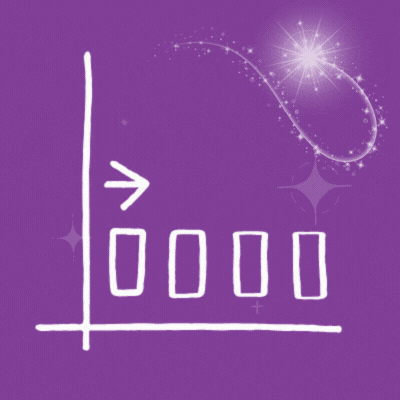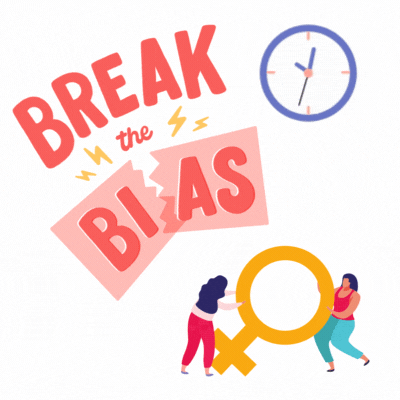Empowering Women Through Coaching: Why It Matters and How It’s Different
Introduction: The Significance of Coaching and Empowering Women
Empowering women to empower other women is like throwing a pebble in a pond—the ripples are far-reaching. When women lift each other up, it benefits not just individuals, but entire communities. Empowering women results in stronger families, healthier children, and more vibrant communities. Women who support each other create a network of strength, resilience, and shared knowledge. It’s about breaking barriers and building bridges for a better future.
This support is the backbone of women’s empowerment coaching. Unlike traditional therapy, this type of coaching focuses on the present and future, helping individuals identify where they are and where they want to be. Coaches act as guides, providing support and accountability Vanessa Marie Life Coach. Through a structured approach, women set goals and create action plans, enabling them to navigate their paths confidently.
Coaching as a Tool for Personal and Professional Development
Career coaching is a game-changer for women. It cultivates confidence, helps set ambitious goals, and charts paths to success. Women in coaching are encouraged to recognize their worth, articulate their achievements, and assert themselves in professional settings Corporate Escape Artist. This transformation isn’t just about personal growth; it’s about taking control of one’s destiny and becoming a force to be reckoned with in any field.
Moreover, coaching significantly promotes mental well-being, helping women reduce stress, increase happiness, and improve their quality of life. It fosters a proactive mindset, encouraging women to take the reins and steer their lives towards fulfillment Care Patron.
The Growing Trend of Women in Online Learning
 Online learning has become a dominant trend, especially since the Covid-19 pandemic. The percentage of fully online learners more than doubled from 2019 to 2022 Forbes. This shift has been particularly advantageous for women, offering flexibility that traditional learning environments do not. For many women, online education has been a cornerstone for career advancement, especially for working mothers who need to balance various responsibilities.
Online learning has become a dominant trend, especially since the Covid-19 pandemic. The percentage of fully online learners more than doubled from 2019 to 2022 Forbes. This shift has been particularly advantageous for women, offering flexibility that traditional learning environments do not. For many women, online education has been a cornerstone for career advancement, especially for working mothers who need to balance various responsibilities.
Research shows that female students often excel in online learning environments. They engage more actively, communicate effectively, and often surpass their male counterparts in terms of performance AJET. Online learning narrows the gender education gap and equips women for in-demand jobs in the digital economy by removing traditional barriers World Economic Forum.
This shift aligns seamlessly with the principles of empowerment coaching, making it more accessible and tailored to women’s needs today. When combined, online learning and coaching create a robust support system that propels women forward in both personal and professional realms.
As we continue delving into this topic, it becomes clearer that understanding the unique needs of women in coaching is crucial for fostering a more inclusive and supportive environment.
FUN FACT: According to ConsciousnessCalibrations.com, coaching is of higher consciousness and calibrates at 370 or 10 to the 370th power on the Map of Consciousness, which is a significant level relative to the negative and destructive consciousness of the world today (190)
DEFINITION OF COACHING: “form of development in which an experienced person, called a coach, supports a learner or client in achieving a specific personal or professional goal by providing training and guidance.” —wikipedia
Understanding the Unique Needs of Women in Coaching
Differences Between Coaching Women and Men
 When it comes to coaching, understanding the unique needs of women versus men is like preparing two different but equally important recipes. While men often thrive in direct and task-oriented environments, women tend to emphasize empathy and interpersonal connections. This means coaches should tweak their communication styles to foster a supportive and inclusive environment where female coachees feel understood, valued, and supported (Linkedin).
When it comes to coaching, understanding the unique needs of women versus men is like preparing two different but equally important recipes. While men often thrive in direct and task-oriented environments, women tend to emphasize empathy and interpersonal connections. This means coaches should tweak their communication styles to foster a supportive and inclusive environment where female coachees feel understood, valued, and supported (Linkedin).
One aspect worth noting is the emotional dimensions women bring to the table. Women are generally more inclined towards collaborative and inclusive leadership styles than men, who may focus on assertiveness and self-promotion (Mental Toughness Trainer). This difference underscores coaches’ need to be adaptable and intuitive, bridging the gap between diverse coaching needs.
Addressing Gender-Specific Challenges and Barriers
Women in coaching confront a slew of gender-specific challenges and barriers that their male counterparts might never encounter. For example, women coaches often face significant roadblocks such as lack of opportunities for promotion, conflicts with family commitments, and lower salaries (Typeset). These aren’t just “women’s issues” but reflections of systemic problems embedded in the coaching landscape.
Another barrier is the limited voice female coaches have within their departments. Only 36% of female coaches reported being fully involved in the decision-making process (Women’s Sports Foundation). The imbalance of power and voice further exacerbates the challenges women face, creating a cycle of underrepresentation and limited influence.
The Role of Same-Sex Role Models in Coaching
 The mantra “You need to see it to be it” holds special importance for women in coaching. Same-sex role models serve as crucial evidence that success is attainable, offering a tangible perspective that empowers and motivates aspiring female coaches (ResearchGate). They dismantle stereotypes and provide real-world examples of overcoming barriers, laying the groundwork for future generations.
The mantra “You need to see it to be it” holds special importance for women in coaching. Same-sex role models serve as crucial evidence that success is attainable, offering a tangible perspective that empowers and motivates aspiring female coaches (ResearchGate). They dismantle stereotypes and provide real-world examples of overcoming barriers, laying the groundwork for future generations.
Interestingly, having more female role models isn’t just a feel-good initiative; it’s a palpable factor in workforce dynamics. Female role models provide mentorship and support, cultivating a culture of encouragement and aspiration. This becomes a reinforcing loop—more visible female leaders inspire the next crop of women to step into leadership roles themselves.
As we delve deeper into the journey of coaching women, it’s worth remembering that addressing their unique needs isn’t just about ticking a box. It’s about reshaping the landscape so that every woman (and man, for that matter) feels empowered, valued, and understood regardless of her background. We pave the way for a more inclusive and balanced coaching world by tackling these gender-specific challenges.
Building Confidence and Self-Esteem
 The Impact of Coaching on Women’s Self-Perception
The Impact of Coaching on Women’s Self-Perception
Ever felt like you’re just not good enough despite clear evidence to the contrary? Well, you’re not alone. Many women wrestle with self-doubt and low self-esteem. Coaching can be a transformative tool for changing how women see themselves. Confidence coaches enable women to overcome self-imposed barriers by identifying and challenging limiting beliefs. This helps women set meaningful goals, create action plans, and stay accountable for their progress (Quenza). It’s like having a trusted friend whispering, “You can do it!”
Coaching psychology has been shown to build high-status, agentic traits in women, such as assertiveness and confidence (BPS). By focusing on realistic and achievable goals, women can break down larger aspirations into smaller, manageable steps, boosting their self-perception and overall confidence (Christel Owoo).
Strategies for Cultivating Confidence in Professional Settings
So, how can you cultivate confidence like a pro? Well, here are a few nifty strategies:
- Craft Your Personal Elevator Pitch: Know your worth and be ready to share it in a concise statement.
- Replace Negative Self-Talk: Challenge and replace those pesky negative thoughts with positive affirmations.
- Dress for Success: Believe it or not, your wardrobe can significantly impact your confidence.
- Body Language: Practice confident body language. Stand tall, make eye contact, and smile.
- Observe Confident Women: Watch and learn from women who exude confidence in your field (Comerica).
By deliberately practicing these strategies, your confidence will grow over time, enhancing your professional presence (HBR).
Overcoming Imposter Syndrome and Self-Doubt
Ah, Imposter Syndrome—the sneaky feeling that you’re a fraud about to be exposed. Sound familiar? It’s a common challenge for many women, but not an impossible one.
- Focus on Facts, Not Feelings: Keep a rational perspective. Facts often tell a very different story than our feelings.
- Talk to Someone You Trust: Sharing your doubts can be incredibly liberating.
- Reframe Your Thoughts: Challenge negative thoughts and reframe them more positively.
- Mentorship: Seek out mentors who can offer guidance and share their own experiences with Imposter Syndrome (Asana).
A certified coach can help you become aware of why Imposter Syndrome shows up and work through it so you can confidently move forward (Create Coaching & Consulting). Another key strategy is to address perfectionism by setting realistic standards and focusing on progress rather than perfection (Coaching Focus).
Integrating these approaches into your life’ll defeat Imposter Syndrome and promote greater self-belief and authenticity.
Confidence and self-esteem are the bedrock of personal and professional success. Through coaching, you can unlock these vital elements and step into a more empowered version of yourself. Ready to take the plunge? You got this! 😊
Navigating Work-Life Balance
Addressing the Dual Pressures of Career and Personal Life
Balancing career and personal life is like walking a tightrope for many women. The dual pressures of managing a career while keeping up with household responsibilities can be overwhelming. But it doesn’t have to be. The key lies in knowing your limits and communicating them clearly. Two Rivers Therapy advises being assertive, setting boundaries early, and being consistent to prevent professional obligations from encroaching on personal time.
Strong support networks also play a crucial role in achieving this balance. According to Linkedin, communicating openly with your partner and sharing responsibilities can lighten the load. Remember, compromise may open doors to unexpected opportunities.
Strategies for Setting Boundaries and Prioritizing Well-Being
Let’s face it: the concept of a perfect work-life balance is more mythical than reality. Instead of chasing perfection, focusing on setting practical boundaries is more effective. Business recommends letting go of the work-life balance myth and getting to the heart of what matters most. Being connected is crucial, but it’s equally important to set limits.
- Set Work Hours: Establish specific work hours and stick to them. It’s helpful to set alarms or reminders to stay on track (LinkedIn).
- Guard Your Downtime: Protect your personal time fiercely. This means not answering work emails or messages during off-hours.
- Create Physical Separation: If you work from home, set up a designated workspace. Once you step out of that area, you can mentally switch off from work.
Check out this resource illuminating the consciousness of workaholism: 5 Signs of Workaholism & How to Break Free from the Trap
Prioritize your health and practice self-care (MoneyLion). A healthy lifestyle is about coping with stress, feeling good, and achieving your goals.
Overcoming Societal Expectations and Biases
Society often has rigid expectations for women, pressuring them to excel at home and work. But guess what? It’s okay to challenge those norms. Become Brave Enough shares stories of women who’ve defied societal expectations and emerged stronger.
Ingrained biases, along with generational trauma and “emotional” inheritance, can make this journey arduous but not impossible. Fighting biases means ensuring women’s equal access to opportunities and empowering them in workplaces (Human Rights Careers). Legal protections and addressing unconscious biases are equally important (IMD).
Navigating work-life balance is a continuous effort to set boundaries, prioritize well-being, and challenge societal norms. Transformation is impossible, but it is achievable through resilience and conscious effort.
Did you think you could only inherit physical propensities for illness? Learn more about inherited trapped emotions and ancestral trauma here: Unearthing Our Roots: Healing Ancestral Trauma and Its Universal Significance
Developing Leadership Skills
Empowering Women to Take on Leadership Roles
Empowering women to take on leadership roles isn’t just about filling seats at the board table—it’s about fostering a mindset shift. Through targeted workshops, training seminars, and mentorship programs, women can be encouraged to expand their confidence, let go of perfectionism, and take more calculated risks in the workplace (LHH).
Leadership roles demand credibility, innovative thinking, and strategic foresight. Women often grapple with establishing their credibility and negotiating adeptly. Coaching helps them navigate these challenges by fostering skills like managing organizational complexity and strategic thinking and acting (CCL).
Cultivating Transformational Leadership Qualities
Transformational leadership focuses on inspiring and motivating teams to exceed their own expectations. Women naturally excel in participative and charismatic leadership styles, making them highly effective in transformational roles (Linkedin).
Here’s how to cultivate transformational leadership qualities:
- Develop Emotional Intelligence: Understand and manage your emotions and empathize with others.
- Encourage Innovation: Don’t be afraid to think outside the box and encourage your team to propose creative solutions.
- Build a Collaborative Culture: Foster an environment where team members feel valued and empowered to contribute.
These qualities not only help in leading effectively but also in creating a more inclusive and balanced workplace.
Valuable Resource: Harnessing Emotional Intelligence: Certified Training for Coaching Excellence
Overcoming Gender Biases in Leadership Perception
 Despite advances, gender biases in leadership persist. Women in executive roles often face stereotypes that can hinder their progress. Biases like being perceived as too nurturing or lacking assertiveness can be addressed by:
Despite advances, gender biases in leadership persist. Women in executive roles often face stereotypes that can hinder their progress. Biases like being perceived as too nurturing or lacking assertiveness can be addressed by:
- Highlighting Collaborative Style: Emphasize how a collaborative approach yields effective results and complements assertiveness (Forbes).
- Building Self-Awareness: Seeking feedback from trusted advisors can provide valuable insights into how one’s leadership style is perceived and where adjustments may be needed (Forbes).
- Promoting Gender Equality: Addressing unconscious biases at an organizational level helps create a supportive environment for women leaders (Linkedin).
Leadership coaching is a crucial ally in this journey, guiding women to navigate these challenges and develop a robust and influential presence.
Recognizing and overcoming these biases benefits the individual and paves the way for a more inclusive and diverse corporate culture. This culture supports and promotes talented women, empowering them to lead and inspire.
The Power of Women Coaches
Benefits of Having Women Coaches for Both Female and Male Athletes
 Let’s dive into why having women coaches on the field is a game-changer! Imagine a young female athlete seeing a coach who looks just like her – it’s not just inspiring, it’s transformative. Women coaches serve as powerful same-sex role models, fostering an environment where young girls can visualize their own potential Women’s Ski Coaches.
Let’s dive into why having women coaches on the field is a game-changer! Imagine a young female athlete seeing a coach who looks just like her – it’s not just inspiring, it’s transformative. Women coaches serve as powerful same-sex role models, fostering an environment where young girls can visualize their own potential Women’s Ski Coaches.
But wait, it gets better! Women coaches bring a unique blend of communication, collaboration, and emotional intelligence. This balanced approach benefits female athletes as well as male athletes. Emphasizing empathy and emotional intelligence helps build well-rounded, resilient teams, Martindale Coaching.
By simply being visible in their roles, women coaches challenge stereotypes about gender and leadership. They inspire other women to pursue coaching, amplifying the representation of women in sports and leadership positions Athlete Assessments.
Creating Visible Career Pathways for Aspiring Women Coaches
Now, picture a young woman dreaming of becoming a coach. What if she had a roadmap to success? The visibility of women coaches at elite levels is crucial. When aspiring coaches see women succeeding, it demystifies the path and makes the goal more attainable Olympics.com.
One shining example is the International Olympic Committee (IOC) initiative to increase the visibility of women coaches. By showcasing successful female coaches, the IOC is opening doors for future generations, encouraging them to step into coaching roles with confidence Olympics.com.
Despite barriers like self-doubt and limited opportunities, women are making strides. Programs like WISH offer support and resources, helping women navigate and overcome these challenges. Such initiatives are essential to build a more inclusive and diverse coaching community Olympics.com.
The Impact of Diversity in Coaching on Overall Team Performance
Here’s a fun fact: diversity doesn’t just look good on paper; it supercharges team performance! Teams with coaches from diverse backgrounds leverage different perspectives, leading to more innovative solutions and better decision-making Behavioral Policy. How cool is that?
To truly harness the power of diversity, creating an environment where all voices are heard is crucial. Psychological safety – where team members feel safe to express their ideas – is key. This inclusive culture fosters more honest discussions and bolder ideas Linkedin.
The bottom line? Diverse coaching teams lead to higher performance and a competitive edge. By embedding diversity into their core practices, organizations can unlock untapped potential, driving success both on and off the field Proaction International.
As we wrap up this chapter, remember that empowering women coaches isn’t just about fairness – it’s about leveraging diverse strengths to build better, more successful teams.
The Role Victimhood Plays in Disempowerment for Men & Women
As a teacher of consciousness, I understand the lower levels of consciousness and the impersonal attractor fields of victimhood. We all have some form of victimhood running through our consciousness, especially in our collective consciousness as humans. It can be a challenge to believe that victimhood is acceptable, especially regarding how we women perceive ourselves.
Feeling like a victim is one aspect of what “being asleep” or “under the veil” is about. Until you are willing to step into courage on any topic or “life theme” you will continue to “play the victim”
This is not the place to expand on victimhood and its pervasiveness in our unevolved world. This is not a disparagement of our evolution of consciousness, just an acknowledgment of “what is” and how to navigate this world from true power and conscious elevated living.
I just wanted to introduce you to consciousness and make you aware that you can choose higher consciousness and let go of all forms of victimhood as best you can. C
Check out my podcast: The Awakening Quest: 1001 Ways to True Power & Conscious, Elevated Living
Suggested Reading: The Power of Awareness: A Deep Dive into the Levels of Consciousness
Conclusion: The Future of Women’s Coaching
The Growing Importance of Women-Focused Coaching Initiatives
Coaching initiatives specifically tailored for women have become more crucial than ever. These programs are not just about skill development; they’re about addressing the unique challenges women face in their personal and professional lives. Executive coaching, for instance, plays a vital role by helping women develop skills, build confidence, and navigate high-stakes situations. This personalized attention helps in overcoming self-doubt and effectively communicating in order to achieve career success CoachHub.
The Potential for Coaching to Drive Societal Change
Coaching isn’t just about individual development; it has the potential to bring about significant societal changes. By addressing workplace inequalities and creating inclusive environments, coaching can be a powerful tool for gender equity. Women can learn strategies to assert themselves, build robust networks, and negotiate for equitable pay, all essential for their advancement in the workplace Boldly.
Call to Action: Supporting and Promoting Women in Coaching Roles
If we want to see more women in coaching roles, we must take actionable steps. One significant approach is providing visible role models that inspire and motivate other women to follow suit. Organizations can actively promote and celebrate the achievements of women coaches, making their success stories known to the community NRPA.
Moreover, transparent and credible coaching pathways should be established, with continuous support offered to women at each career stage. This supportive environment can encourage more women to take up coaching by offering mentorship, co-coaching options, and acknowledging female coaches’ competencies Women and Sport.
The Positive Coaching Alliance also offers nine strategies to recruit more female coaches. These include inviting women actively, including female mentorship programs, and offering co-coaching options that provide flexibility Positive Coaching Alliance.
Empowering women through coaching is not just an option; it’s necessary for a more inclusive and diverse society. As we continue to elevate women in this field, we create a ripple effect that will undoubtedly lead to more inclusive decision-making processes and improved team performances. Let’s all take part in supporting these initiatives, ultimately promoting a virtuous cycle of growth and inclusivity.
If you are looking for a personal, health, or professional coach, you can look for one in our online directories:
- Find a health or wellness coach here,
- Find a personal development coach here.
- Find a spiritual growth and awakening coach here.
- Find an online community for personal development or self discovery here.
- Find a business coach here or a business growth community here.
Suggested Reading:
- How to Start a Thriving Life Coach Business: A Step-by-Step Guide for Beginners
- Upgrading You Holistic Health Coaching Skills: The Symphony of Body, Mind, & Spirit
- How to Embrace the Power of the Sacred Feminine
- The Rise of Women Helping Women: A Coaching Revolution
- Become a “Best-in-Class” Certified Health Coach in Only 20 Weeks
- Unstoppable Self-Empowerment: Unleash Your Inner Journey of Self-Discovery
- Women’s Empowerment E-Book-Breakthrough: The shocking block most women don’t know they have!
- From Courage to Mastery: Exploring the Dimensions of Women Empowering Women
- How to Embrace the Power of the Sacred Feminine







